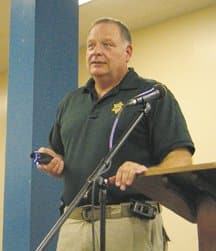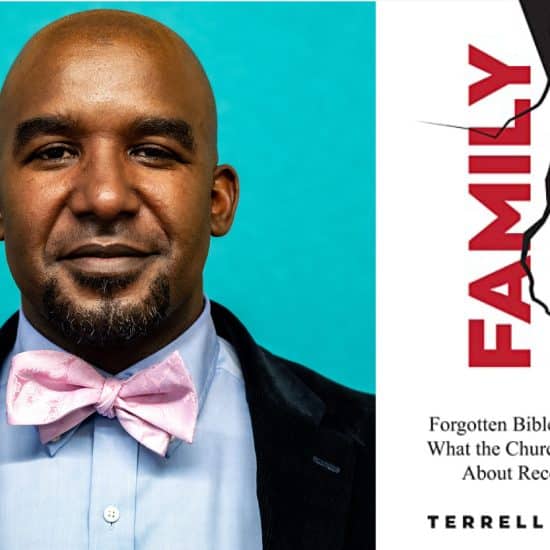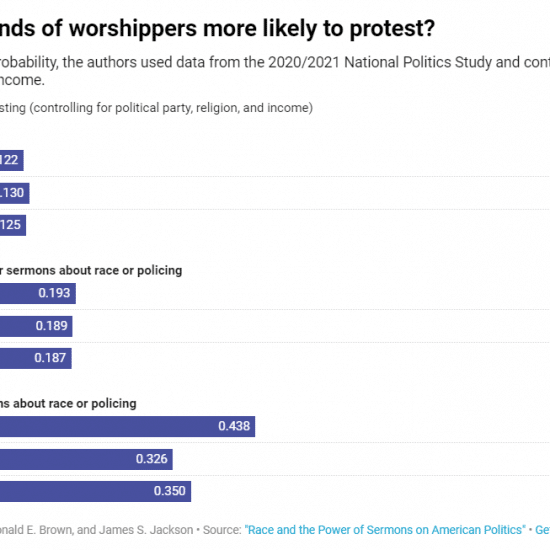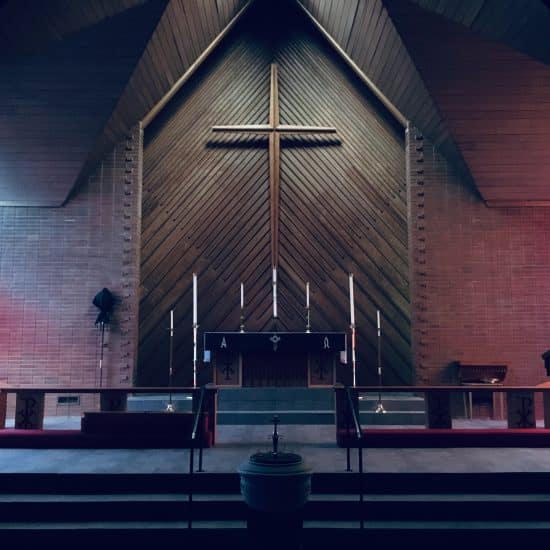Houses of worship increasingly have become targets — from robbery to arson to Sunday morning shootings and child abductions. Technological advances can enhance safety at church — or become a gateway for security breaches.
Size and budget constraints may determine the level of technology a congregation chooses to include in its security measures.
Lighting
Simple and less expensive safety approaches may include installing or upgrading security lighting inside and outside the church campus. Use a timer or install motion- or light-sensitive equipment to deter prowlers.
Security patrol

Cole County Sheriff Greg White leads a seminar on church safety at First Baptist Church, Jefferson City. (Ken Satterfield photo)
|
Enlist volunteers to patrol hallways and empty rooms during worship and around the campus perimeter and parking lots during worship and other activities. Technology can keep volunteers connected via cell phone or pagers.
Congregations also might consider developing a "safety team," designating specific people to lock down the building or to direct evacuation in an emergency or to contact police, fire department or ambulance service.
Some churches utilize off-duty law enforcement officers or security personnel to keep property and people safe. These individuals are licensed to carry the latest weapons and security equipment, such as Tazers. And even in states, such as Missouri, in which private individuals can legally purchase Tazers, law enforcement and security officers are trained to use them.
Nursery access
Technology can play a large role in keeping church nursery areas safe. Some churches use a number system to alert parents to needs during worship. Parents are given a number when they leave children in the nursery or preschool area. If a parent is needed, the assigned number is flashed on worship center screens or on an electronic board.
Some congregations use a wireless system, with lighted or vibrating pagers (much like those found in restaurants) to alert individuals. Privacy for the parent and less distraction to worshippers are the primary benefits.
Background checks
Congregations should consider using background checks to vet employees or volunteers. Many Baptist associations and state conventions will provide the service at low or no cost to churches. Local law enforcement agencies may be able to assist as well.
The three primary church insurance companies — Church Mutual, Brotherhood Mutual and GuideOne — also offer background checks or will point churches to preferred providers.
Security systems
Security systems offer the most effective, but expensive, safety option. They can range in technological complexity and cost — from systems that just make noise to those that alert a security firm or police — depending upon the options a congregation wants or feels it needs.
When choosing a security firm, congregations should make certain the company has adequate liability coverage and that it offers adequate protection for the campus' size. Churches should ask for referrals to congregations currently using the company, and verify that the firm complies with local building codes and alarm ordinances.
The congregation also should make sure to read the contract, including the warranty, closely, or check it with an attorney.
When video surveillance is incorporated into security, be sure to have someone actively scanning the feed during worship, recommended Steve Hewitt, editor-in-chief of Christian Video Magazine and Christian Computing Magazine.
Website
A church's website could become a technological gateway for a security breach, particularly if the church offers its members an electronic giving option.
Brad Locke of eGive, a St. Louis-based firm, recommends clients limit the number of individuals authorized to administer the website, and to change the password every 90 days.
Someone should be designated to monitor the church website to note changes and to make certain the changes were authorized. The church also should make certain that the web server software is up to date and scanned often for vulnerability.
"Please don't think that the security of your site is not important because what if someone hacked into your website or an unauthorized individual signed into your website and changed the html to direct your online givers to their website?" Locke reminds his clients each fall.
A hacked website can be used to plant malicious software that can infect visitors' computers or be used in identity theft.






